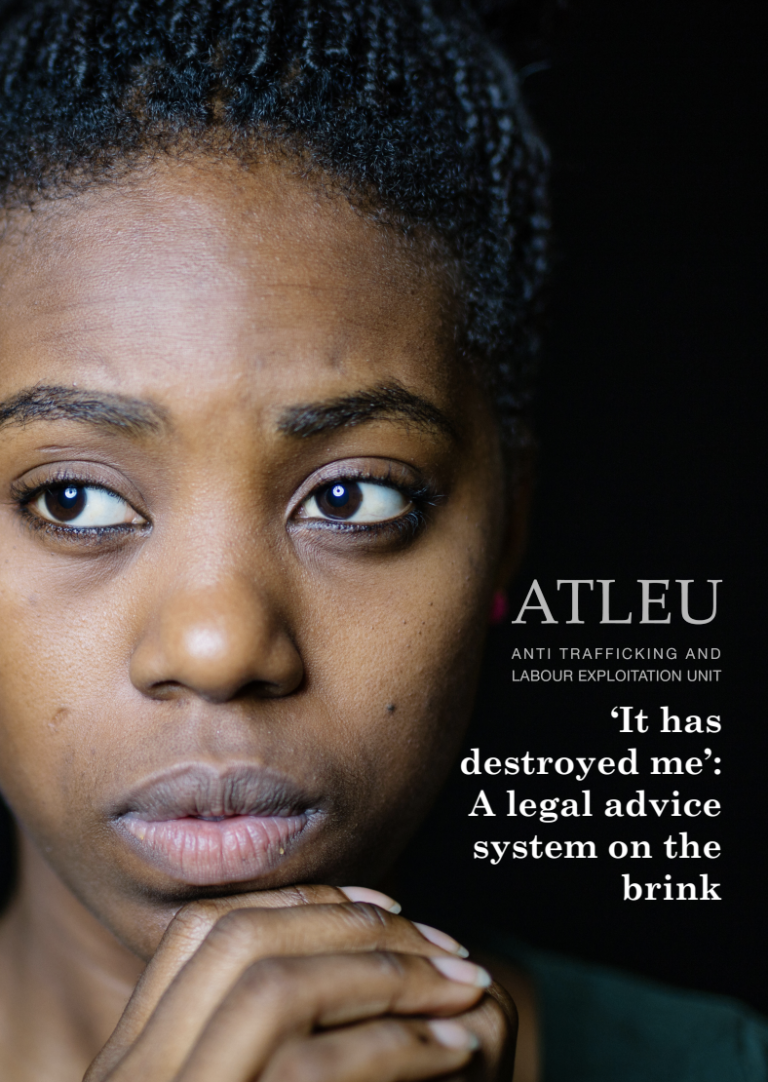Access to legal advice is crucial for survivors of trafficking and modern slavery but the legal aid funding system is failing them. Survivors are not able to access timely and quality, legally aided advice and representation when they need it, with devastating consequences. It is causing destitution, homelessness, anxiety, mental health problems, and missed case deadlines. It is leaving people unable to apply for asylum, in detention and at risk of removal, and is driving some survivors back into exploitation or trafficking. Significant capacity within the anti-trafficking support sector is spent on searching for legal representation, detracting from their ability to support the core needs of survivors.
ATLEU’s survey to frontline support and advocacy organisations shows this stark and alarming gulf in the availability of legally aided advice for survivors.
An enormous 90% of respondents had struggled to find a legal aid immigration lawyer in the past year.
Our survey shows the damaging impact this has on short and long term outcomes for survivors:
• 55% of respondents said it left survivors in destitution or unable to access appropriate accommodation or support
• 97% said it caused survivors stress, anxiety or contributed to poor mental health
• 64% said it resulted in the survivor being unable to meet a deadline in their case, for example with the Home Office
• 57% said it left survivors in a position where they were unable to claim asylum, and others shared experiences of survivors being detained or at risk of removal
• 29% of respondents said it had left survivors in a situation of exploitation.
The primary cause of this legal advice crisis is the legal aid funding system. There are a number of interrelated issues with the legal aid scheme which mean that taking on cases involving victims of trafficking and modern slavery is not viable or sustainable for many legal aid providers. This is because they are uniquely complex, long-running and costly, and therefore are ill-suited to payment by standard legal aid fixed fees which do not change to reflect the time taken or level or work carried out. This also deters the development of specialist expertise, and encourages restricting the level of work carried out on a case, which can lead to poor quality advice and representation.

